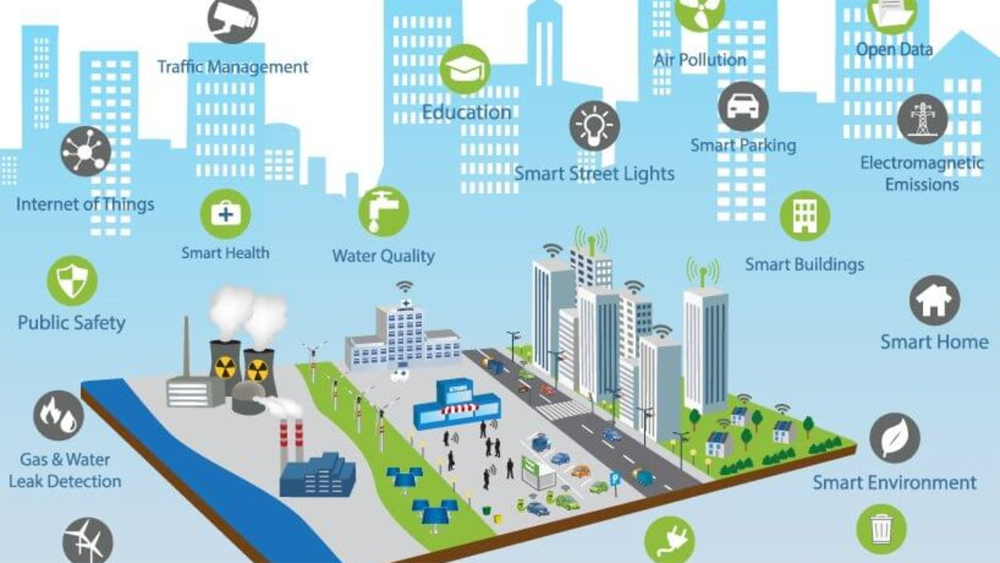Chennai has seen consistent growth in its infrastructure and urban planning over the past decade. One of the major contributors to this development is the Smart City Mission. With Chennai being one of the key cities selected under the initiative, there has been a visible change in several sectors—especially real estate.
Let us look into how smart city projects directly influence property valuations and what buyers and investors can expect moving forward.
What is the Smart City Initiative in Chennai?
The Smart City initiative aims to improve the standard of living by upgrading infrastructure, improving urban services, and introducing technology-based solutions. In Chennai, areas like T Nagar have been selected for area-based development. This includes better roads, improved drainage systems, energy-efficient lighting, digital infrastructure, and green spaces.
These changes are designed to improve daily life and contribute to long-term real estate appreciation.
Improved Infrastructure and Public Amenities
One of the most noticeable effects of smart city work is infrastructure improvement. Roads are re-laid with better drainage, pedestrian pathways are added, and waste management is modernised. These improvements enhance the locality and make it more livable.
When an area has good road access, regular water supply, less flooding, and proper waste disposal, people are more likely to look for homes there. This increases demand and, in turn, raises property valuations. Several such improvements are underway or completed in central and south Chennai, and their impact is already visible.
Better Connectivity Means Higher Demand
Transport connectivity is a major factor that influences property prices. Under the smart city initiative, Chennai is seeing enhancements in last-mile connectivity, expanded public transport services, and smart traffic management systems. With these upgrades, residents can save time during travel, which is a major convenience factor.
Properties in Chennai located near upgraded metro stations, smart bus stops, or improved arterial roads are now more in demand. This demand gradually drives up property values. For example, areas near the metro extensions in Phase II have already reported an increase in interest from buyers.
Digital Integration and Smart Governance
Digital systems have been introduced to make services like water bill payment, property tax, and electricity usage tracking more transparent and accessible. Smart poles with Wi-Fi, security surveillance, and real-time traffic information are also being implemented.
These improvements signal that the city is adapting to modern standards, which makes it more attractive to younger homebuyers and working professionals. As digital systems become a part of everyday life, the value of properties in such connected zones rises steadily.
Green Zones and Livability Score
One of the main goals of smart city development is to make cities more sustainable. Chennai has initiated several green projects such as creating parks, tree-lined avenues, and better waste segregation.
An area with more green cover, fresh air, and a quieter environment becomes more favorable for families and retirees. These changes contribute to higher livability scores. Areas with better livability generally show a consistent rise in property prices over time.
Impact on Commercial Property
Smart city developments do not benefit just residential zones. Commercial areas are also witnessing growth due to improved road access, digital services, and modernised infrastructure. Business owners find such areas more attractive because of lower operational hurdles and improved customer access.
As businesses grow in these zones, there is also an increase in job opportunities, which further drives residential property demand. This combined growth has a multiplying effect on valuations across nearby localities.
Property Valuation Trends in Smart City Zones
Recent market data shows that property rates in smart city development zones have increased more compared to areas that did not receive such upgrades. T Nagar, for instance, has seen a noticeable rise in land and apartment rates after the smart city works began.
This is because buyers and tenants are actively choosing areas with better services and infrastructure, even if it costs slightly more. Over time, such preferences drive steady value appreciation.
Are These Gains Long-Term?
The changes brought in by the smart city mission are not temporary. Once a locality is upgraded, the benefits stay and even grow. For example, when a stormwater drainage system is fixed, it reduces flooding issues in the long term. This attracts more residents who are previously hesitant due to waterlogging problems.
Such long-term improvements keep the locality relevant and functional. This helps property owners enjoy higher resale value and rental demand over several years.
Should You Invest in These Areas?
If you are looking at long-term investments, then properties in Chennai located within smart city development zones are a practical choice. These areas are being upgraded in a phased manner, and early investments can yield good returns as development progresses.
However, investors should be aware of the current status of the project and timelines before making a decision. While the overall outlook is positive, construction delays or administrative bottlenecks can affect short-term gains.
Conclusion
Smart City initiatives are reshaping urban spaces in Chennai. With better infrastructure, digital services, and improved livability, there is a clear shift in property demand and value. Both residential and commercial zones are benefitting from these upgrades. While the extent of change varies from one locality to another, the overall direction points towards steady appreciation.
If you are considering buying or investing, looking into areas impacted by these developments could give you a strong edge. Properties in Chennai that fall under smart city zones are showing healthy growth and can be considered for long-term value creation.
